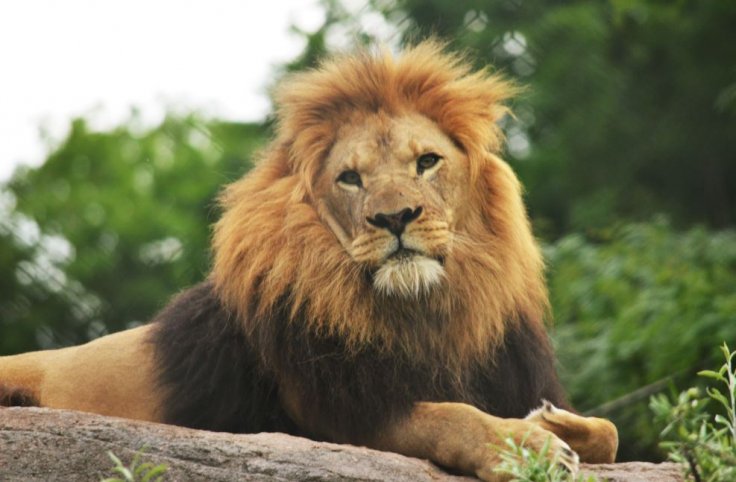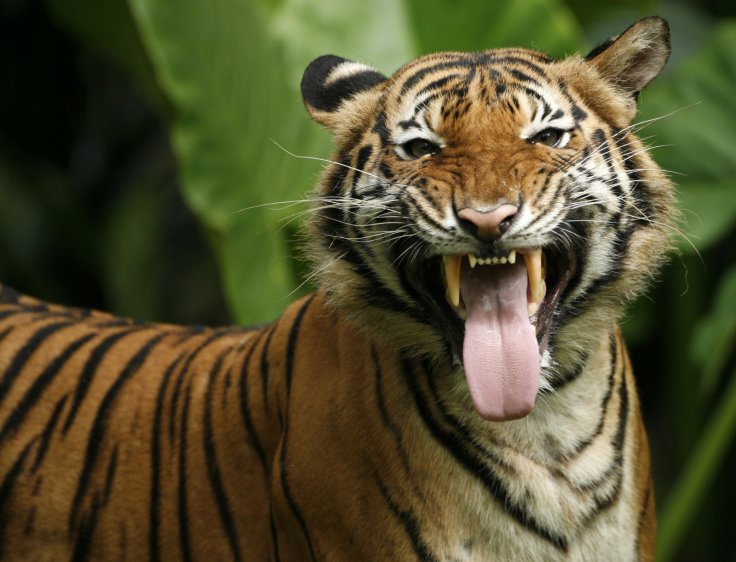Less than three weeks after reporting that one of its tigers had tested positive for COVID-19, the Bronx Zoo in New York, confirmed on Wednesday, that seven other big cats at the zoo have tested positive for the coronavirus infection.
A statement released by the Wildlife Conservation Society (WCS)—that oversees the operation of the Bronx Zoo—said that four tigers and three African lions were diagnosed with the viral disease. Earlier this month, a four-year-old Malaysian tigress, Nadia, became the first big cat at the zoo to be found infected with COVID-19.
According to the statement, all the eight cats, including Nadia, are said to be in good health and recovering. "All eight cats continue to do well. They are behaving normally, eating well, and their coughing is greatly reduced," the announcement stated.
Tally at Bronx zoo increases to eight

The zoo confirmed that three tigers from its three-acre enclosure, Tiger Mountain, tested positive for the disease. Along with the tigers, three African lions that were found to be coughing also tested positive for the coronavirus. The said cats had already exhibited symptoms of the disease when Nadia was diagnosed with COVID-19. Interestingly, one of the tigers showed no outward symptoms of the disease.
"We tested the tigers and lions out of an abundance of caution and will ensure any knowledge we gain about COVID-19 will contribute to the world's continuing understanding of this novel coronavirus. The testing of these cats was done in veterinary laboratories and resources used did not take from those being used for human testing," the zoo authorities said.
Unlike Nadia, who was tested for the infection through the collection of samples from her nose, throat, and respiratory tract under the influenced anaesthesia, these cats were subjected to faecal tests. This eliminated the need for anaesthesia and tested only faecal samples using methods developed by the park's laboratory partners.
Other big cats at the zoo unaffected

The statement affirmed that the other big cats housed in the zoo such as Amur leopard, cheetah, clouded leopard, snow leopard, and puma, were healthy and showed no signs of illness. Addressing the question of how the wild cats were infected, the statement said, "Our cats were infected by a staff person who was asymptomatically infected with the virus or before that person developed symptoms. "
Taking the risk of human-to-animal transmission into consideration, the US' largest metropolitan zoo also said that it has put preventive measures in place for all staff members caring for the wild felines, and for animals in other related WCS zoos.
No evidence of animal-to-human transmission
Several reported cases of animals testing positive for COVID-19, including two pet cats in New York have caused panic among pet owners and others alike. However, the park assured in the statement that there was no cause for alarm.
"There is no evidence that animals play a role in the transmission of COVID-19 to people other than the initial event in the Wuhan market," the statement reassured. In addition to this, it confirmed that there was no evidence of animal-to-human transmission, including by pets, in the US so far.









